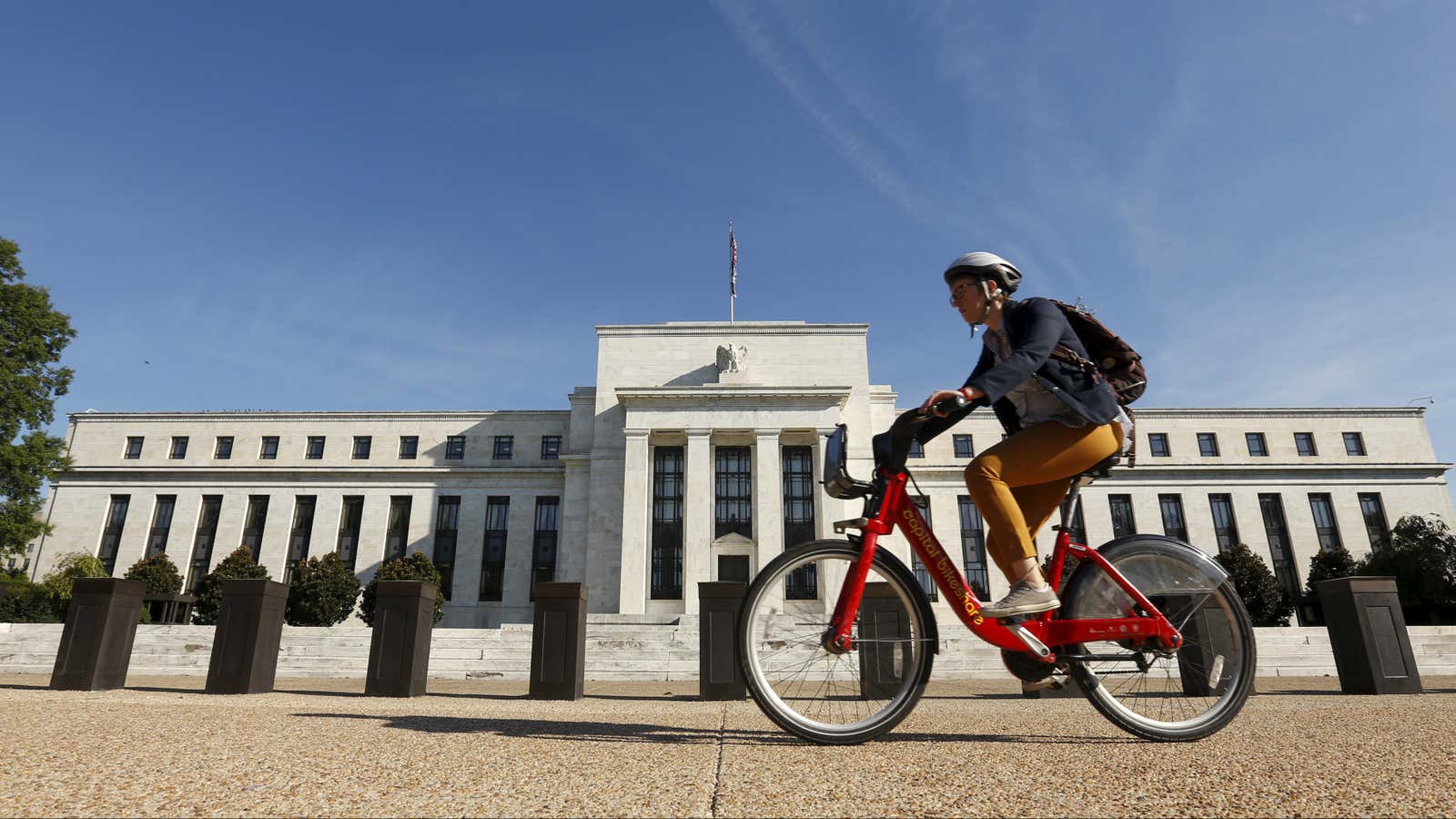Welcome to the first full day since the US Federal Reserve’s long-awaited interest rate hike. You made it!
So how are you feeling? If you’re a millennial, probably anxious. That’s per a new survey from Berkshire Hathaway HomeServices, which finds that millennials are much more freaked out about rising interest rates than other generations.
To be precise, 60% of millennials say they would feel “anxious” were mortgage rates to rise, compared to 39% of all people surveyed. When asked how much higher mortgage rates would affect their lives, 66% of millennials responded they would “somewhat impact” or have a “strong impact,” versus 43% of the whole survey group.
BHHS randomly surveyed 2,502 people across the US in mid-November to gauge their feelings about the housing market, the Fed, and interest rates in general. Of those, 678 were millennials (defined as ages 18 to 34), 2,001 were current homeowners, and 501 prospective homeowners. The margin of error on millennial responses was 3.8%.
What specifically is generating that stress? More than half of millennials worry that an increase in mortgage payments would affect their ability to save. Other common millennial concerns: that it would be tougher to get a new car, to get loans, to finance vacations, and to buy a home at all.
One reason millennials might feel disproportionately concerned about the prospect of rising rates is that they’re also much more likely to feel the historically low rates of recent years are normal. When asked whether they perceived current mortgage rates to be low, average, or high, 51% of millennials chose “average” and only 14% picked “low.” Somehow, 23% of millennials even said “high.” Among everyone polled, 39% thought rates were low and 38% said they were average.
A separate question asked whether you were aware that mortgage rates had been at historic lows in recent years. Fifty percent of millennials said no, versus 32% of the whole pool.
Another possibility is that millennials are just kind of anxious in general. This is supported by studies from the American Psychological Association, which in 2013 declared millennials the most stressed-out generation, and this past February reiterated that younger generations had higher stress on the whole.
The funny thing is, millennials are probably the least exposed to the traditional worry people have during a period of rising interest rates: That the stock market could fall. Younger people generally have fewer financial assets (i.e., their life’s savings aren’t as likely to be wrapped up in stocks and bonds), which means that any influence the Fed has on financial markets won’t hit them as strongly.
